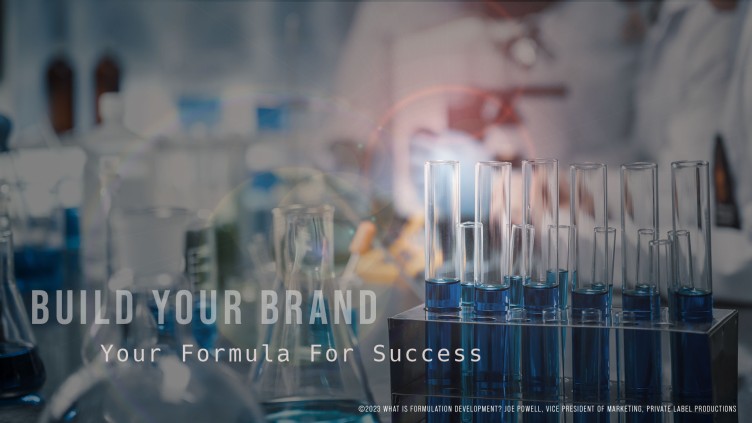
Formulation Development for Cosmetics
Formulation development in the context of cosmetic manufacturing refers to the process of creating a formula or recipe for a cosmetic product.
Developing a formula involves selecting and combining various raw materials, such as oils, emulsifiers, thickeners, preservatives, fragrances, and active ingredients, in specific quantities and ratios to achieve the desired properties, such as texture, viscosity, stability, and efficacy. Formulation development typically begins with a concept for a new product, such as a moisturizer or shampoo. The formulator then researches and selects the appropriate ingredients based on functionality and compatibility. The formulator may conduct stability and compatibility tests to ensure that the components will work well together over time and under different conditions.
After developing a preliminary formula, the formulator usually produces small product batches to test their sensory attributes, like appearance, smell, and feel, as well as their functional performance, such as moisturization or cleansing effectiveness. You can enhance and modify the formula based on the test outcomes until you obtain the desired product.
Formulation development is a critical step in the cosmetic manufacturing process to ensure the quality and effectiveness of a product. A well-formulated product can differentiate a brand and drive consumer loyalty, while a poorly formulated product can result in negative reviews, returns, and brand damage.
Who are the key people involved?
The key people involved in formulation development for cosmetic manufacturing typically include:
- Formulators are scientists who specialize in developing cosmetic formulas. They are responsible for selecting and combining raw materials, testing the recipe, and adjusting to achieve the desired product attributes.
- Product Development Managers oversee the entire product development process, from ideation to market launch. They work closely with the formulators to ensure the product meets the customer’s and company’s goals and objectives.
- Quality Control Specialists ensure that the final product meets the required quality standards. They may conduct stability and microbiology tests to ensure the formula is stable and safe.
- Regulatory Affairs Specialists ensure that the product complies with all relevant regulations and guidelines. They may work with formulators to ensure the formula meets all safety and efficacy requirements.
- Marketing Managers are responsible for developing the product’s positioning, messaging, and branding strategy. They may work with formulators to ensure the product meets consumer needs and preferences.
- Manufacturing Engineers improve the production process to make the product efficiently and at a reasonable cost. They work with formulators to ensure that the formula can be adapted and manufactured on a large scale.
The key people involved in formulation development work collaboratively to ensure that the final product meets everyone’s goals, objectives, regulatory requirements, and consumer needs.
What are some best practices?
Here are some best practices in formulation development for cosmetic manufacturing:
- Understand your consumer, their target consumers, their needs, and their preferences to help select the right ingredients and develop a formula to meet consumers’ expectations.
- Use high-quality raw materials in the formula to significantly impact the final product’s quality and efficacy.
- Optimize ingredient ratios in the formula to help affect the product’s texture, stability, and efficacy.
- Stability and compatibility testing can ensure the formula is stable over time and under different conditions, such as temperature and humidity.
- Sensory testing can help evaluate the product’s appearance, smell, and feel.
- Sustainability is becoming increasingly important to consumers, and cosmetic manufacturers should consider the environmental impact of their products.
- Documentation is essential in formulation development to ensure the process is reproducible and scalable.
A clear understanding of the fundamentals, key players, and best practices is crucial for success in formulation development. By doing so, cosmetic manufacturers and customers can develop products that align with consumer preferences and meet regulatory requirements and industry standards. Formulation development is critical to your success.
Joe Powell, Vice President of Marketing, Private Label Production, LLC

